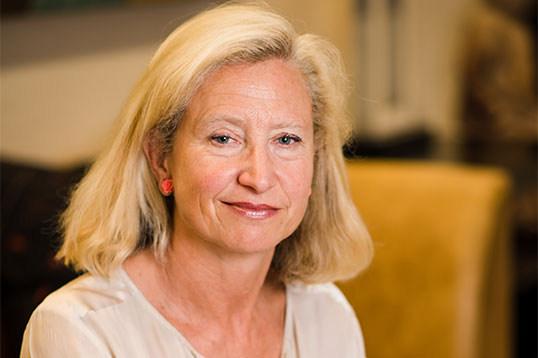Boosting equality: The need for a methodical, systematic approach
on 13 Nov 2020
By Caroline Eber-Ittel, CEO France at Standard Chartered Bank
When faced with the demands of the current health crisis, it is all too easy for other important global issues to fall by the wayside. The natural instinct is to become increasingly introspective and focus on our own domestic challenges. But for developed countries in particular, it is vital that we continue to play our part in strengthening global resilience.
Before the pandemic took hold, the G20 established a number of working groups and tasked them with developing recommendations on seven important global themes. One of these was a new theme, added by the G20 presidency this year: Women in Business. This theme touches many of the others, notably Trade and Investment and the Future of Work.
It is clear that when more women can work and prosper, their economies and communities prosper too. But despite this, progress is limited and we continue to see the same questions asked again and again. What can we do to get more women into leadership roles and onto boards? How can we encourage women to set up their own businesses?
Collaboration between the public and private sectors is key to making progress against these enduring issues. Firstly, actively involving women at each stage of policy making is an obvious measure. This can be reinforced with sandbox testing to check that policies are truly fit for purpose, and not just presented fully-formed without the involvement of the very groups that they concern.
After this, it is down to businesses to put these policies into practice. Often, this begins with HR. Establishing appropriate metrics and acting on the underlying issues that lead to a gender pay gap, implementing training to address unconscious biases, and embracing blind recruitment practices are all popular measures. But unless these initiatives are systematically applied and supported at all levels of an organisation, even the best-intentioned initiatives could fail to result in real change.
At Standard Chartered, our diversity is key to our success. Welcoming diverse points of view and different ideas drives innovation. With this in mind, we are constantly striving to create an environment that promotes equality, an environment which is more inclusive, more open, and where all of our colleagues feel respected. For example, in 2019 more than 80% of our people leaders took part in an Inclusive Leadership Programme focusing on identifying and eliminating unconscious bias and promoting an inclusive culture.
Where we have found a gender pay gap, we have been mindful that this is not a straightforward issue with an easy fix. There are more men in senior leadership positions and in areas of the Bank where remuneration is generally higher. When we adjust our findings to compare like-for-like – men and women within the same level and business area – we find the gender pay gap reduces significantly, for example, the average gap for hourly pay in 2019 comes down from 32% to 4% in the UK, from 20% to 2% in Hong Kong, and from 25% to 1% in the United States. This strongly underscores the need to promote and hire more women into senior roles across the Bank. Today, female country CEOs lead our teams in China, Hong Kong, the UK and the United Arab Emirates and we are working to increase the percentage of women in senior leadership roles globally to 30% by the end of 2020. Our values and our commitment to be Here for good mean that despite the progress that we have made, we know that there is more to be done.
Now that the recommendations on the theme of Women in Business have been published, the public and private sectors need to work together to act on them. Through strong partnerships, we can create a more inclusive future that benefits everyone, regardless of their gender. We must not stop until this has been achieved.
